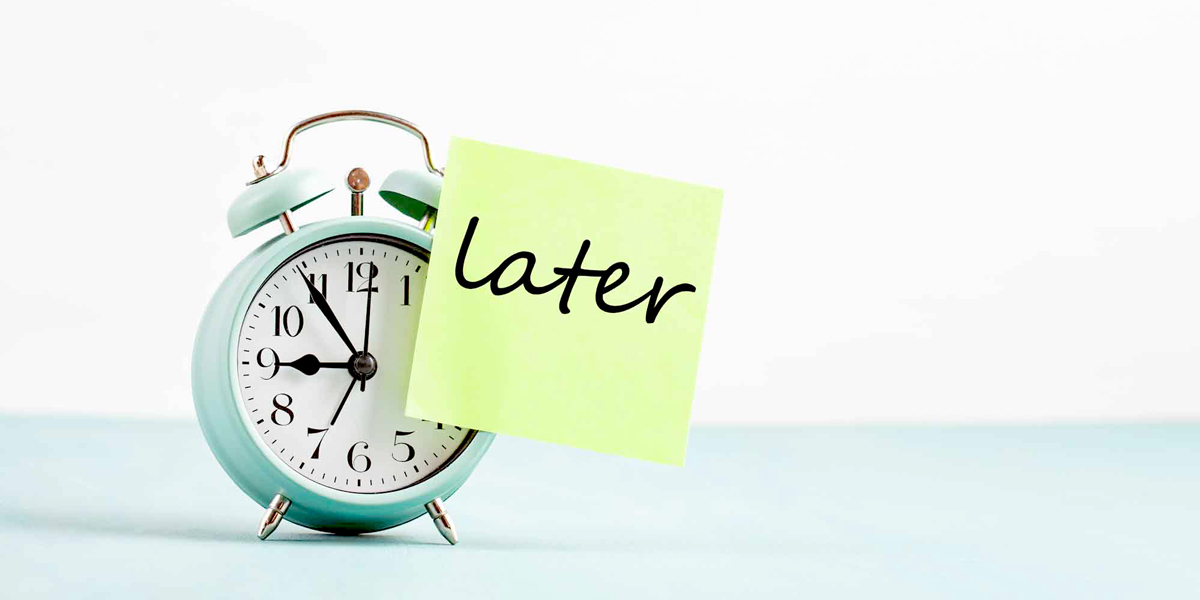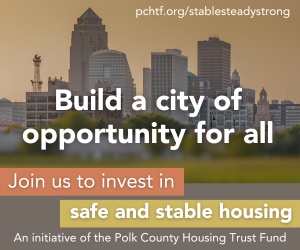Procrastination

Business Record Staff May 11, 2021 | 9:27 pm
3 min read time
725 wordsBusiness Insights Blog, Training & DevelopmentBY ROWENA CROSBIE, president, Tero International
History is full of examples of highly successful and famous people who were also great procrastinators.
- Victor Hugo, whose masterpieces include the historical novels “Les Misérables” and “The Hunchback of Notre Dame,” had a unique method to stave off procrastination: He had his servant strip him naked in his study and not return with his clothes until the appointed hour.
- For Leonardo da Vinci it took 16 years to complete his famous work, the “Mona Lisa.”
- The Dalai Lama now preaches that “you should not procrastinate,” yet while growing up he struggled to finish his assignments unless there were deadlines.
Procrastination has been part of the human race as long as societies have existed. Why is it more prevalent now?
Many of us had high hopes at the beginning of the pandemic for what the time in isolation might help us achieve. We may have thought it a good time to start a home improvement project, an exercise program or an online course. Our lack of commute might have opened up loads of time we never had before to achieve a work goal that had escaped us, start the book we were meaning to write or learn a new language.
In retrospect, the time we spent enduring the pandemic might not show much fruition of our plans. It might also show we slowed the pace on basic work tasks. Couple this with the fact that as we emerge from isolation routine work might now seem more difficult to do.
The reason?
The pandemic influenced the part emotions play in our tendencies to procrastinate. Procrastination is an emotion regulation problem, not a time management problem. It happens when the emotional part of the brain takes over the logical prefrontal cortex of the brain.
In a Fast Company article titled “Five Reasons You’re Probably Procrastinating More Right Now,” author Diana Shi illustrates five causes of the uptick in procrastination as a result of the pandemic.
The first one will not surprise you. Additional stress. Stress from many sources was heightened during the pandemic. As we emerge from isolation, the stresses of what our new normal will be are weighing on us as well. Stress and anxiety can fuel our need for perfectionism, and we can find it easier to delay a task if we feel we cannot do it to our perceived standards.
Second on the list is the absence of buffer behaviors. Shi states that things like a commute actually help with productivity as it allows us to mentally prepare for work.We missed our buffer behaviors during the pandemic and it is not clear what our buffers will look like going forward.
Our shift to remote working during the pandemic happened at a time when many societal issues were in the forefront of our minds. This third aspect caused a shift in priorities. In the presence of reevaluating what is important in life and in the absence of a clear path forward, many routine work tasks did not hold a deeper purpose and were easier to put off.
The final two reasons for increased procrastination are no strangers. Social isolation meant less connection and most importantly less feedback. Without feedback it is easy to feel less satisfied and less motivated.
Burnout, the last reason, is a combination of exhaustion and detachment. Procrastination can be a sign of burnout. When headed toward burnout, avoidance of our work is a coping strategy.
Why does it matter if we are procrastinating more?
The negative feelings we experience when procrastinating fuel more procrastination and more negativity. In business, procrastination can take a serious toll on productivity; wasting time can ruin deadlines as well as relationships. All this putting off ultimately affects happiness. Ninety-four percent of people said procrastination hurt their happiness. It is said employees who procrastinate keep worrying about work long after they’ve ended their day.
The effect of the pandemic on our emotions is not over. How do we make sure we do not let procrastination rule?
Be compassionate with yourself. A study of over 700 people found that the level of compassion that individuals had for themselves could explain their levels of stress and procrastination. Being kind and understanding to ourselves rather than critical can act as a shield to the negative emotions driving us to procrastinate.
 |
Rowena Crosbie |











